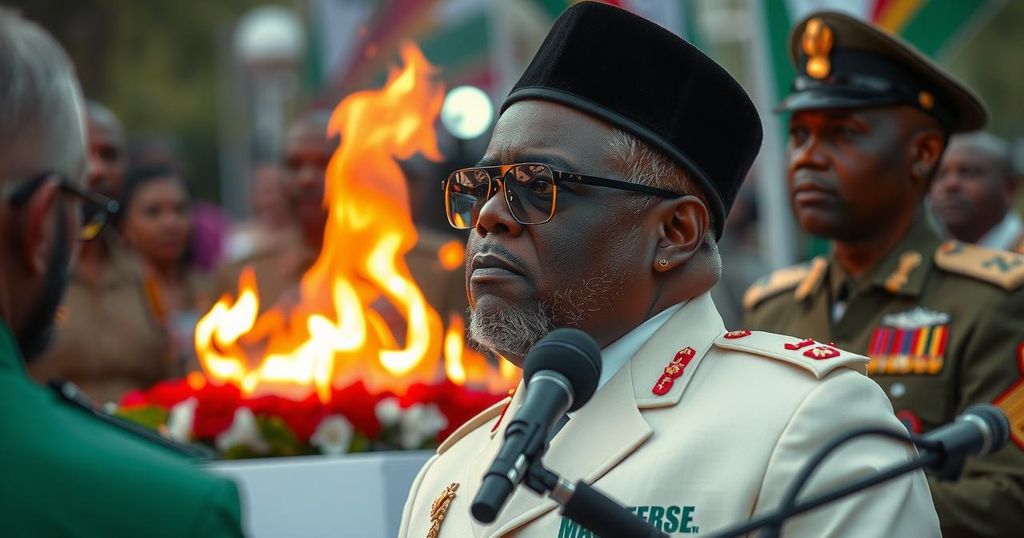Suriname’s Former Dictator Desi Bouterse to Be Cremated Amid Controversy

Desi Bouterse, former leader of Suriname, will be cremated on Saturday after passing from liver failure at 79. The National Democratic Party has organized a remembrance gathering, but a state funeral has been ruled out. Despite his significant political influence, his legacy remains controversial due to his conviction for past political crimes and his recent death under circumstances that have drawn public scrutiny.
Desi Bouterse, the former dictator of Suriname, is to be cremated on Saturday following his recent death at the age of 79 due to liver failure. His party, the National Democratic Party (NDP), announced this development, declaring that there will not be a state funeral for the ex-president. In alignment with customary practices, a gathering for remembrance will take place at the party’s headquarters the day before the cremation, allowing friends and family to reflect on his life and contributions. Although flags will be flown at half-mast on the day of the cremation, this reflects a notable departure from the norms that typically accompany state funerals for leaders.
Bouterse’s rise to power began as a sergeant major who orchestrated a coup in 1980, five years post Suriname’s independence from Dutch colonial rule. He was initially ousted under international pressure after seven years but returned to power via a second coup in 1990, only to be elected president in 2010, serving for a decade. His legacy is marred by controversy, particularly following a conviction for the extrajudicial killings of political opponents in 1982, for which he was serving a 20-year prison sentence at the time of his death, having lost an appeal months prior.
The autopsy revealed that Bouterse died due to complications from liver failure tied to chronic alcohol consumption. His family and political allies have condemned the public disclosure of this sensitive information as an invasion of privacy. Despite his tumultuous political history, Saturday’s memorial serves as an occasion for reflection among his supporters.
Desi Bouterse’s historical significance in Suriname’s political landscape is profound, marked by his dual coups and lengthy governance. He played a critical role in shaping the nation post-independence, yet his regime was marred by allegations of human rights abuses and corruption. Following a conviction for murder and corresponding prison sentences, his political career culminated in contentious legal battles concerning his legacy. As his cremation approaches, the broader implications of his rule continue to elicit mixed reactions among the populace, underpinning the complexity of his life and impact on Surinamese history.
In conclusion, the cremation of Desi Bouterse will mark a significant moment for Suriname as the nation reflects on the complex legacy left by its former dictator. While his life was characterized by power struggles and controversial governance, his passing presents an opportunity for both remembrance and critical reflection on the country’s journey towards democratic stability. The decision to forgo a state funeral further emphasizes the contentious nature of Bouterse’s legacy within Suriname.
Original Source: www.barrons.com







